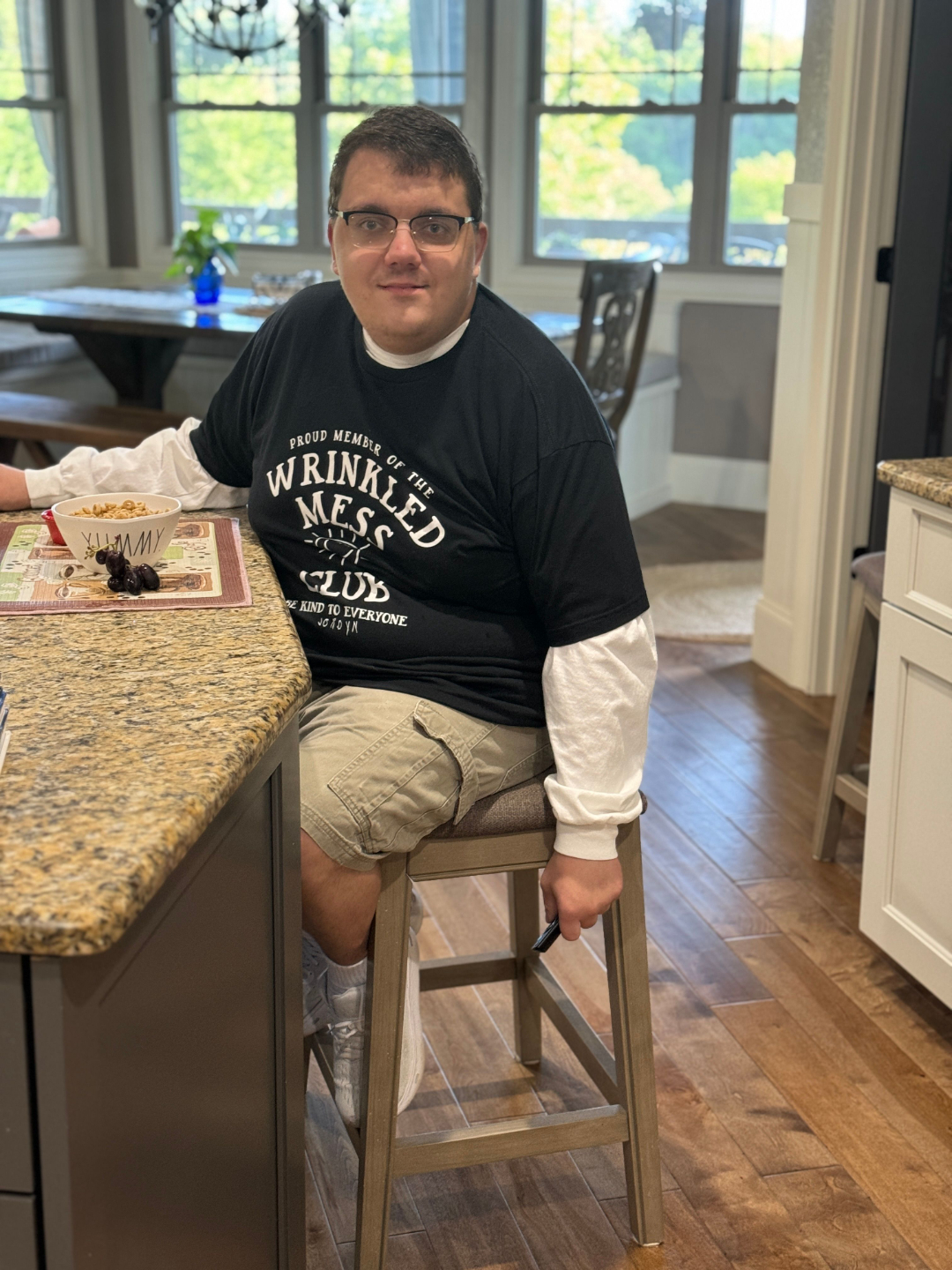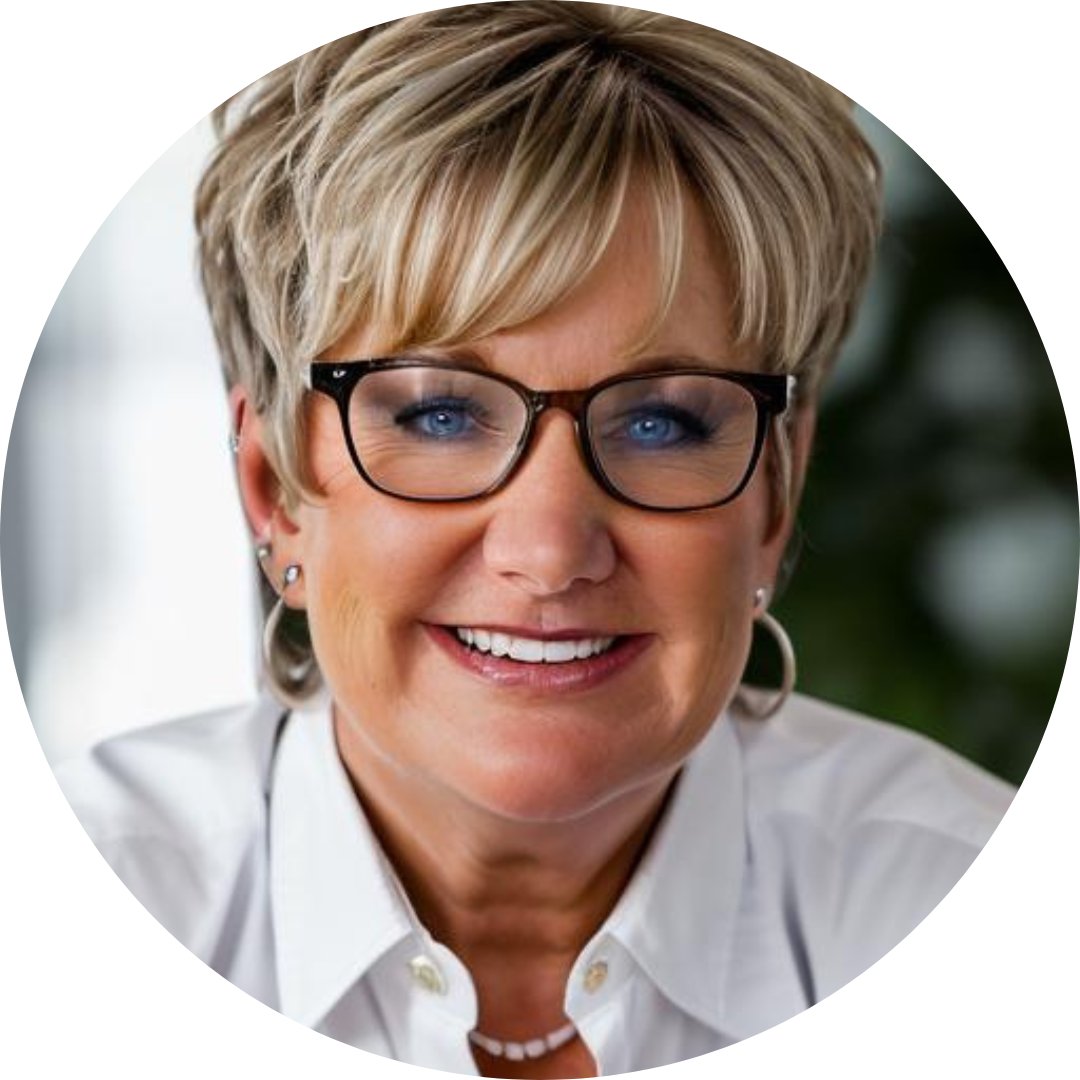Autism Divide; Holding Truth in Both Hands

Autism is in the news. And not in the way many of us hoped. And with it… a whole lot of noise. Opinions. Debates. Lines drawn.
The autism community—our community—feels divided in ways that are heartbreaking to watch. I’ve waited to speak on this.
Not because I didn’t have thoughts—trust me, I did—but because I knew I needed time to really think. I’ve learned over the years that rushing to react—especially when emotions are high and clarity is low—rarely leads to the peace I want for myself, or the impact I want to make for others.
I watched the division unfold online, read the headlines, saw the emotional reactions from every corner of the autism community. But I chose not to jump in right away. I needed to protect myself and not let my own thoughts get swept up in the whirlwind.
So, I took a break from the noise and the news. I sat with what I felt. And now I’m ready to speak—not from a place of defense or fear, but from a place of grounded truth, compassion, and experience.
A recent speech by U.S. Health and Human Services Secretary Robert F. Kennedy Jr. has lit a firestorm across the autism community. It’s all over social media, fueling arguments, causing hurt, and exposing a divide that’s been brewing quietly for years—between those who view autism through a lens of identity and those who live in the day-to-day, often devastating, reality of profound disability.
I’ve lived in this world long enough to know that both truths exist. And yet right now, it seems like we’ve forgotten that we can hold more than one truth at once. Let me say this first and clearly: I love my son with my whole heart. Jordan is the reason I do what I do. He’s the heartbeat of my life and the reason I founded Not Your Average Autism Mom. He has taught me things I never would’ve learned otherwise—about patience, joy, and unconditional love.
And also, raising Jordan has changed the course of my life in ways I never imagined. I didn’t expect to still be a full-time caregiver and guardian at 56. I didn’t expect the endless advocacy, the sleep loss, the emotional toll. I didn’t expect to become a single mom along the way, a statistic in the staggering divorce rate in our community—because yes, autism affects marriages too. I didn’t expect my life to look like this, yet I am so thankful for the path it took and where I am today. And that’s what gets lost in these conversations—the idea that acknowledging the hard somehow diminishes the love. It doesn’t.
When RFK Jr. spoke, he didn’t speak for all families. But I believe he did speak for many who have felt unseen for a very long time—especially the families raising children with profound autism, children who require 24/7 care, who self-injure, who don’t speak, who may never live independently. For the 27% of families raising children with severe autism, his words—however clumsy or controversial—felt like recognition. And that matters.
I don’t agree with everything he said. I don’t agree with all the language he used. Words do matter. But I also believe intention matters—and from what I heard, his intention wasn’t to shame or dehumanize, but to draw attention to an epidemic that continues to grow.
Yes, I said it—epidemic. I know that word alone might spark anger, but let's step back and compare. When we call obesity an epidemic, or address the opioid or fentanyl epidemic, we’re not dismissing the individuals affected—we’re recognizing the scope of the problem and the need for urgent support. The word “epidemic” doesn’t always mean contagious—it means widespread and increasing, fast. That’s exactly what we’re seeing with autism.
When Jordan was diagnosed, I was told he was 1 in 158 children diagnosed. Today, that number is 1 in 31. That’s not a gentle climb—that’s a spike. And it’s not just numbers—it’s real children, real families, real lives being changed in ways they never anticipated.
Every single day, I hear from moms of newly diagnosed children—scared, overwhelmed, grieving, and confused. I hear from moms who are drowning in IEP paperwork, waiting lists, meltdowns, and sleepless nights. I see the panic in their eyes as they wonder what their child’s future holds. This life is hard. And I would be lying if I said I wouldn’t want to spare another family from the pain and challenges we’ve endured through the years.
That doesn’t mean I’m ashamed of my son. That doesn’t mean I don’t see his worth despite the fact he will never live independently or pay taxes.. But if research could identify a preventable cause, if we could reduce suffering, wouldn’t we want that?
I know there are many families who believe vaccines played a role in their child’s regression. Despite what the studies say, their experiences are real to them. I would never discount the truth they’ve lived. And it’s not just vaccines—there are countless other environmental factors being discussed now more than ever: toxins, mold, pesticides, medications, food additives. These conversations deserve more attention, not less. Even the CDC acknowledges that environmental factors may contribute to autism in combination with genetic predispositions.
It’s not anti-science to ask hard questions—it’s how we find answers. Maybe genetics create a vulnerability, but it’s also possible something in the environment triggers it. Maybe it's both. Maybe it's something else entirely. But if we don't keep asking, we’ll never know.
We don’t dismiss cancer patients by saying, “It’s just genetics, there’s nothing we can do.” We investigate. We research. We try to learn what might be preventable. That same energy should be brought into autism conversations—especially when the impact on families is so profound.
What frustrates me most is that this divide has become politically charged. Families are being forced to choose “sides”—as if this is a simple red-or-blue issue, when the reality is far more human and far more complicated. It breaks my heart that compassion is being replaced with condemnation. That parents who are simply telling their truth are being attacked or silenced.
We should be able to say:
“Yes, my child is amazing and this is unbelievably hard.”
“Yes, I want acceptance and I want answers.”
“Yes, I love my child and I wouldn’t wish this life on another family.”
This isn’t either/or. This is both/and.
There are autistic adults who live full, vibrant lives, and we must never dismiss their voices. Their experiences matter, and their advocacy has moved the needle in powerful ways. But we also must not forget the families living in survival mode—those who are bathing, dressing, and feeding their nearly adult children each day, wondering what happens when they’re no longer here. Their experiences matter too.
We can—and must—make room for all of it.
I don’t believe in demonizing someone for asking hard questions, especially when those questions come from a place of wanting to understand and help. I believe in conversations that don’t begin and end with outrage. I believe in curiosity, in nuance, in hearing one another out before deciding what label to slap on.
I believe in doing better—for our children, for their siblings, and for the future families who will walk this road.
We don’t need more shouting. We need more listening.
We don’t need more division. We need more honesty.
And we need to stop measuring worth by who’s the loudest, most correct, or most politically aligned.
This is personal. For all of us. I know not everyone will agree with what I’ve shared here—and that’s okay. Your experiences, your thoughts, your truths matter too. This isn’t meant to spark debate or fuel more division. I’m not writing this to argue or defend—I’m simply sharing my truth, as a mother who has lived this life for nearly three decades. I know that some will still leave hateful or dismissive comments, convinced that their perspective is the only “right” one. But that’s not what this is about.
What I truly wish for is a world where we can hold space for one another. Where we can listen to stories that don’t match our own and still offer grace. Where we can agree to disagree, and still choose to love each other. We don’t have to see it the same to walk this journey together. I am thankful conversations are happening about autism. And I hope, with everything in me, that we can stop fueling the divide—and start standing together for the betterment of all our families living alongside autism. 💙
This was written by Shannon Urquiola at Not Your Average Autism Mom.
Thank you for being part of our journey.

Shannon shares her lived experiences in hopes of creating a more inclusive world for our children and adults on the spectrum.
Our mission is to equip families with resources, training, coaching, and community support. We believe if you are willing to expose yourself, your child, and your family to the world with kindness and honesty that compassion and understanding will follow.
She presents to organizations and businesses in person and virtually.

